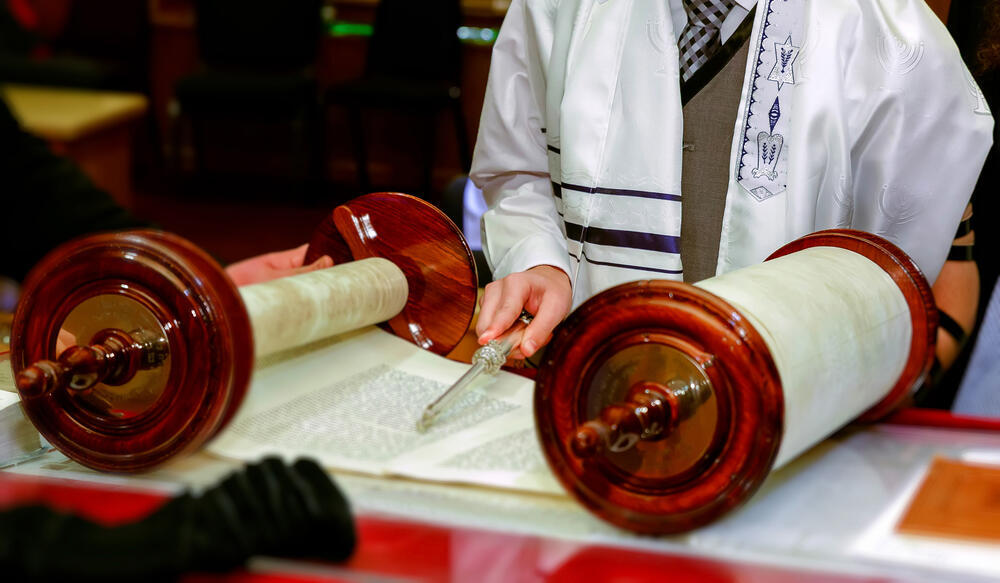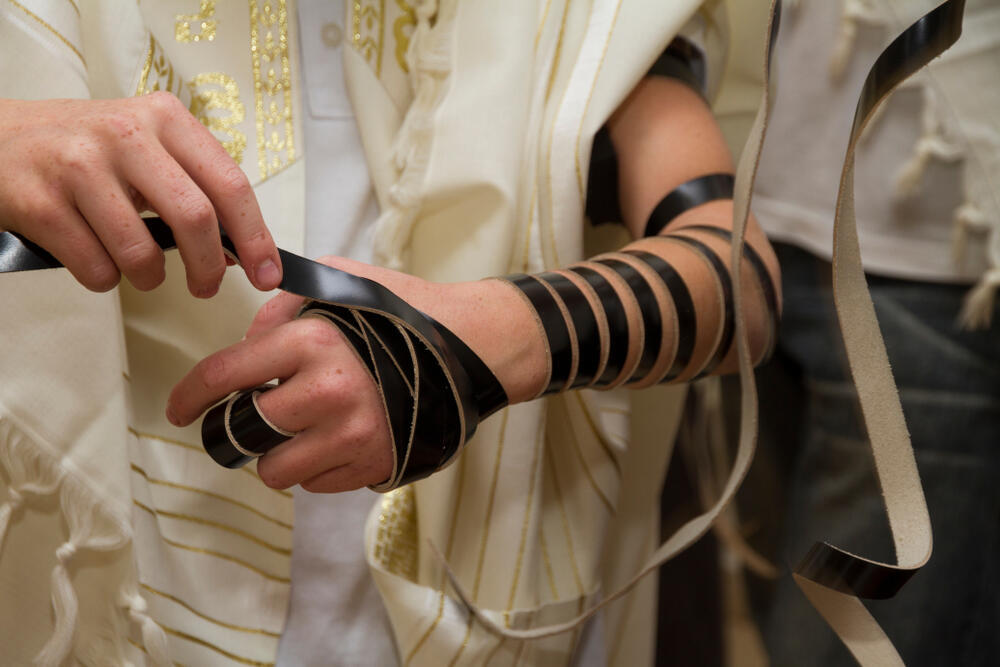Getting your Trinity Audio player ready...
The bar mitzvah ceremony, as well as the bat mitzvah ceremony, are considered to be among the focal points of any Jewish teenager's life. While today it's hard to imagine any Jewish teen going without it, it's actually a custom that began during the middle ages in northern France.
"The bible never mentioned it," said Prof. Hizki Shoham, head of culture studies at Bar Ilan University. "It began in the middle ages as a local, obscure event that referred to the difference between a child and an adult."
What kind of ceremony was it back then?
"It was specifically related to the kind of mitzvah that cemented the place of the boy in the context of religious worship. With Ashkenazi Jews, it was accepted that a child doesn't read from the Torah or perform sermons. When it was finally a child's turn to experience it, it became a notable event that for many reasons was decided as a 13th birthday milestone.
"You had to have known the Hebrew calendar and most Jews back then didn't. They didn't know when the month began. Most just went to the synagogue and waited for an announcement."
Which is interesting, since Jews were considered to be more organized than other people.
"It's all relative. While Jews were more literate than Christians and Muslims, knowing individual birthdays were reserved for the most highly educated back then, namely those who were proficient in Astrology, revered as an actual science back then."
Professor Shoham's new book examines the cultural aspect of the bar Mitzvah and its evolution through time, claiming it's a barometer of everchanging values in Jewish cultures.
"There were several criteria marking the transition from childhood to manhood, some of which were related to physiological changes in his body, so it wasn't the same in terms of age for everyone."
Throughout the years, the ceremony that was first limited to the Askhenazi communities began spreading. Printing first became mechanized in Europe during the 15th century, and that made calendars more easily accessible for everyone, formalizing the exact timing of the bar mitzvah ceremony for all.
"It wasn't that way for everyone, though. In Yemen, the practice did not become standardized until the 20th century. It was an initiation that not everyone saw with an accepting eye. There were complaints as far back as the 17th century that it marks the 'canceling of the Torah' and that it just serves as an excuse to hold lavish celebrations."
Initiations are common practice al over the world. While in Africa it was perhaps being able to fight a predator, in Judaism it was proving proficiency in reading and writing.
"The child needed to prove he was able to read the Torah and lead a prayer sermon," Prof. Shoham explained. "Up until 13 years old the boy carried out practices from an educational standpoint, but from that point on it became a religious obligation.
"The reason anthropologists love initiations is that it exemplifies what a certain society holds dear. For Jews back then, studying and being proficient in the Torah meant a higher status and increased likelihood of success and fruition.
"Going into modern times the nature of the ceremony changed, which means the meaning of being a Jew changed as well. There were also differences between Jewish communities in different places. Each defined adulthood and the role of the Jewish boy in the religious sphere differently.
"In North America, for example, there is full ceremonial equality between boys and girls. While in Israel the issue of bat mitzvah is not always noted or mentioned, in America they place equal emphasis on the bat mitzvah ceremony as they do for boys.
"In Israel, the expectation from a boy is to wear a Tefillin, while for girls it's more of a social occasion, not so much a religious practice, but both look at a girl's ceremony from a somewhat misogynistic standpoint, criticizing what is considered overt sexual expressions and the glorification of the culture of consumption."
From there, the idea of going on a bar/bat mitzvah trip became more accepted. "For a girl who might like Harry Potter, there's a trip to England, while a boy who is into football gets tickets to a game overseas.
"But it's actually Jews in the United States, a culture we consider as one that puts much higher emphasis on consumption, that place higher premiums on initiations. A Jewish boy or a girl don't reach that age and forego any sort of Jewish practice to mark the occasion.
"Since Israel is the land of the Jewish people as it is, they tend to take a lighter attitude about it, but in the U.S it's perceived as a mission of sorts. Reading from the Torah and leading sermons is prominent as a way to prove a sort of loyalty to the Jewish ethos."





